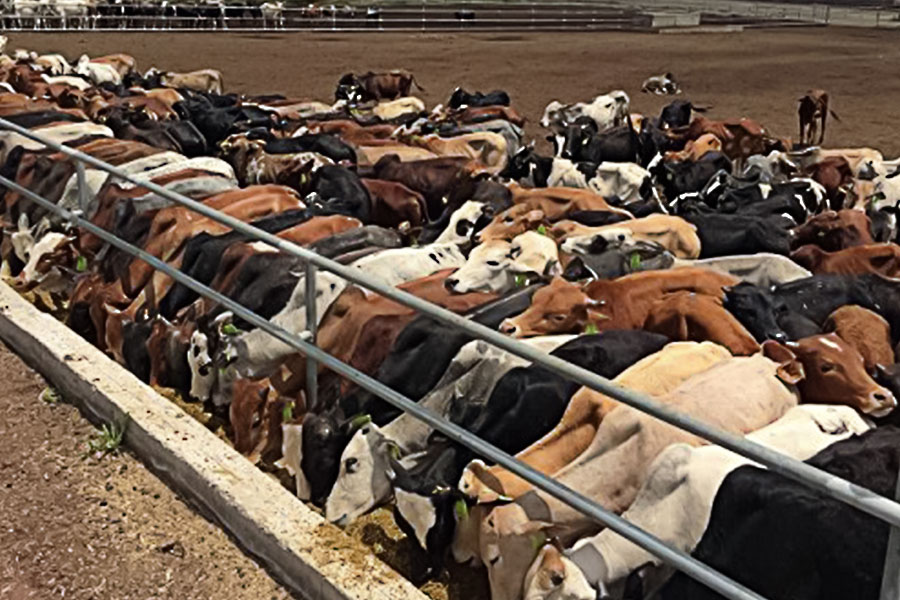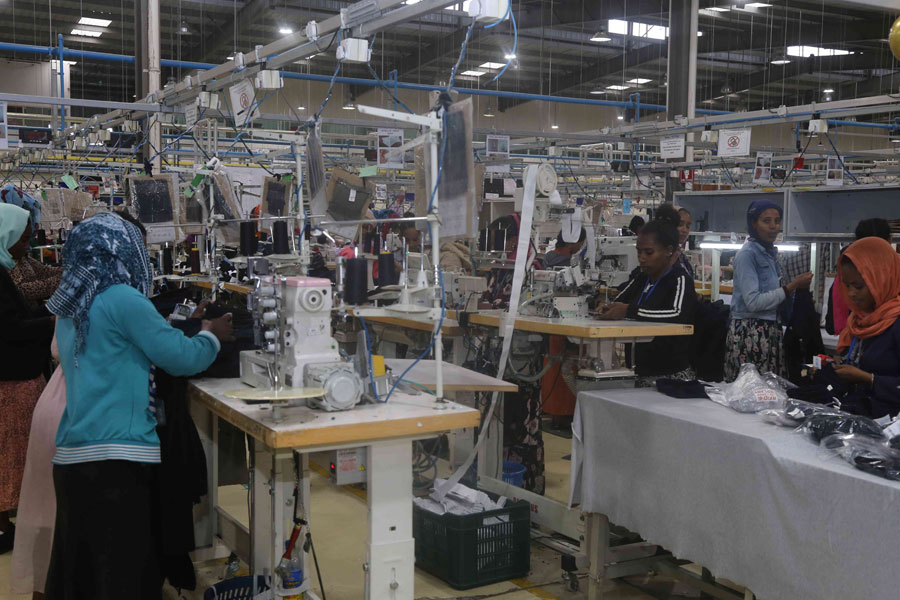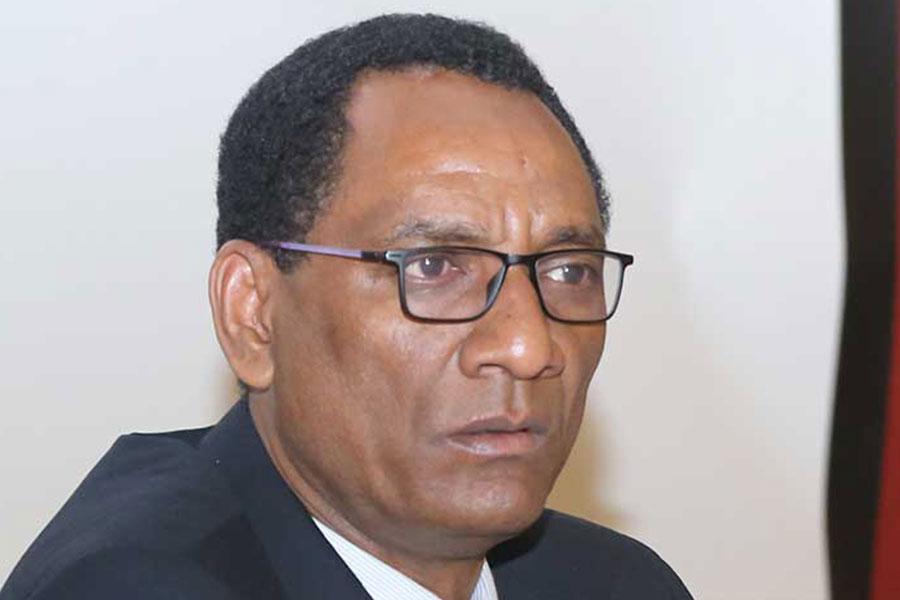
Radar | Mar 12,2022
Dec 23 , 2023
By BERSABEH GEBRE ( FORTUNE STAFF WRITER )
Primary unions scattered across the country may face potential dissolution if they fail to meet the new requirements introduced by the Ethiopian Cooperative Commission. Ethiopia is set to embark on a cooperative sector reform with stringent criteria and standards, signalling a significant shift in its regulatory landscape. Scheduled to begin implementation in two weeks, the reform focuses on evaluating regional cooperative agencies based on their capital, number of transactions, labour force, and internal structure. The agencies with a score less than 25 on a scale of 100 will be subject to potential dissolution.
The reform is part of a broader effort by the Commission to enhance the efficiency, accountability, and purposeful functioning of 106,000 primary unions, 402 cooperative unions and five federations engaged in various sectors, including agriculture and housing.
Officials aim to align them with their stated purposes under the new model. Berhanu Dufera, the finance development coordinator, emphasises the need to establish entities that operate with clear objectives and structures. He said it was recommended by an Indian firm that conducted a study on primary cooperative unions, federations, and leagues.
He disclosed that a lack of proper leadership in some of the organisations could be rectified with a structural reshuffle as the Commission itself goes through institutional reform. Berhanu recalled the similar ranking provided to savings and credit unions two years ago while he highlighted the flexibility provided to cooperative unions to adapt to the new regulatory framework.
"It is their choice," said Berhanu, referring to the options of either dissolution or merger.
Led by Getachew Meles (PhD), the Commission had earlier planned to enforce mandatory external audits, as many coalitions failed to conduct the required annual audits without government intervention.
Head Auditor Taha Diaga notes that several cooperatives have not undergone audits for several years. The recent wave of reforms aims to instil a stricter modality for the implementation of audits to enable federal authorities to assess the financial standing of unions. Taha emphasises the importance of financial transparency while indicating the delay poses challenges in making informed decisions.
A draft directive outlining clear guidelines and timelines for audits has been sent to the Justice Ministry for comments.
Farmer unions play a critical role in the agricultural sector, managing the collection and distribution of fertiliser, while financial cooperatives have provided a financial lifeline to communities estranged from financial institutions. Some even managed to grow into banks as the financial sector opened up over the past few years. Research conducted in 2019 highlighted the necessity of comprehensive policies and strategies to increase the role of cooperatives in economic settings. The study by Asfaw Temesgen emphasised the importance of creating sustainable capacity, professional demeanour, and research to bolster the participation of cooperatives in the economy.
The impending reforms have been met with varying responses from different cooperative entities. The 24-year-old Oromia Coffee Farmers Cooperative Union, which has nearly half a million smallholder farmers and nearly 30 million dollars in capital, welcomes the regulatory shift. They met with representatives of the Oromia Regional State Cooperative Commission two weeks ago.
General Manager Dejene Dadi observes the potential for mergers to enhance the capacity of smaller unions. He believes it will provide them with more leverage when seeking loans from financial institutions.
"Mergers will enhance some of the smaller union's capacity," he told Fortune.
Some regional cooperative agencies, such as the Dire Dewa Cooperative Commission, have initiated mergers ahead of the federal authorities' move. The Commission merged 38 primary unions into four clusters nine months ago, serving as a model for federal reform.
Tewodros Getachew, team leader at the Commission speaks of great difficulty in convincing the smaller unions that mergers would serve as beneficial to their interests. He boasts of finding two cooperatives with shares valued at 25,000 Br despite the hurdles.
"Awareness is central to capacity building," he said.
Similarly, the Amhara Cooperative Agency plans to identify and scrap at least a thousand dysfunctional primary unions in the region. It has compiled detailed information on 76 cooperatives comprised of 8,000 unions.
revealed ongoing plans to scrap at least 1,000 of the primary unions in the regional state.
"We'll identify the dysfunctional ones," he noted.
As Ethiopia undertakes to form a robust and purpose-driven cooperative sector, fostering economic development and ensuring the well-being of smallholder farmers and communities is vital. The increased regulatory scrutiny is seen as a positive step by experts toward addressing existing challenges and enhancing the contribution of cooperatives to the nation's economy.
Agricultural economist Shimeles Araya (PhD) acknowledges the ramping up of regulatory oversight as a significant improvement. He observes a lack of incentive for unions to grow into larger coalitions capable of bargaining for a greater financial share or fulfilling their objectives properly. Shimeles points out the need for competent leadership, adequate capital, and proper service provision to ensure the efficiency of cooperative unions.
"Any remaining loopholes can be addressed after the reforms," he told Fortune.
PUBLISHED ON
Dec 23,2023 [ VOL
24 , NO
1234]

Radar | Mar 12,2022

Fortune News | Sep 24,2022

Radar | Dec 07,2019

Editorial | Dec 28,2019

Fortune News | Aug 05,2023

Fortune News | Aug 21,2021

Fortune News | Apr 08,2023

Fortune News | Jul 10,2020

Radar | Dec 01,2024

Radar | Jan 26,2019

Dec 22 , 2024 . By TIZITA SHEWAFERAW
Charged with transforming colossal state-owned enterprises into modern and competitiv...

Aug 18 , 2024 . By AKSAH ITALO
Although predictable Yonas Zerihun's job in the ride-hailing service is not immune to...

Jul 28 , 2024 . By TIZITA SHEWAFERAW
Unhabitual, perhaps too many, Samuel Gebreyohannes, 38, used to occasionally enjoy a couple of beers at breakfast. However, he recently swit...

Jul 13 , 2024 . By AKSAH ITALO
Investors who rely on tractors, trucks, and field vehicles for commuting, transporting commodities, and f...

Jun 28 , 2025
Meseret Damtie, the assertive auditor general, has never been shy about naming names...

Jun 21 , 2025
A well-worn adage says, “Budget is not destiny, but it is direction.” Examining t...

Jun 14 , 2025
Yet again, the Horn of Africa is bracing for trouble. A region already frayed by wars...

Jun 7 , 2025
Few promises shine brighter in Addis Abeba than the pledge of a roof for every family...